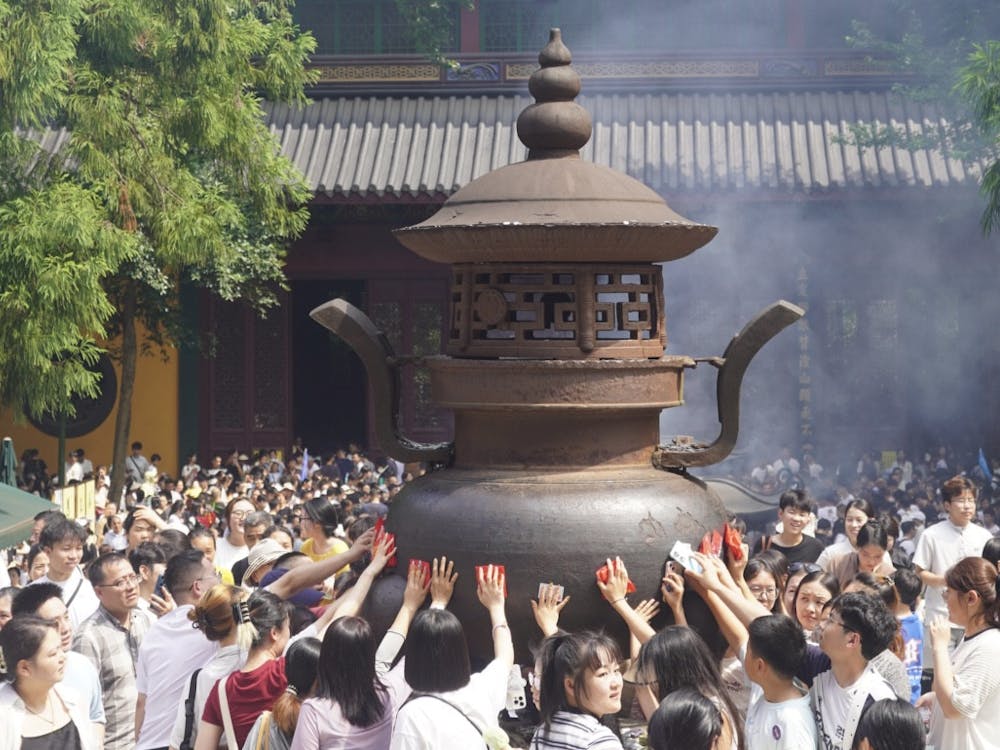We all patiently waited for our acceptance letters to Hogwarts School of Witchcraft and Wizardry when we were 11, only to get an acceptance letter to Johnny Hopkins University at the age of 17. While we have come to appreciate (and, for some of us, love) this Muggle-founded institution, let’s let our imaginations tame a Nimbus 2000 (or is this too old-fashioned of a broom model now?) and join the two acclaimed schools in a harmonious celebration of knowledge and chocolate frogs.
First of all we should stop fooling ourselves and admit that we are all quite Ravenclaw. Even the Hufflepuff-est of us are still very Ravenclaw. Even neglecting our love for “wit beyond measure” and unique personalities, JHU is still so raven: we are haunted not only by real ones, but also by Baltimore Ravens and ravens repeating “Nevermore” one too many times.
However, if we were to take a different approach, freshmen would be Hufflepuffs: their dorms are close to the kitchens (FFC!) and they are all almost too friendly. The youngsters are also quite often confused about their identities and majors, placing them in Helga’s all-accepting house. Sophomores are Ravenclaws: this is when most of us take Organic Chemistry/Calculus 3/other difficult classes, and prepare our GPAs for internship applications. The second year is also when we can be fully ourselves with a few chosen humans. Freed from the chains of dorms and meal plans, juniors are Gryffindors, bold in operating this brave new world. Finally, seniors are Slytherins, driven and ambitious, keen to be someone grand.
If Harry went to Hopkins, he would probably be a Pike brother: isn’t he suffering from a show off hero syndrome? The pledge challenges would knock his glasses off! Also, with a big inheritance from his parents, Mr. Potter could afford multiple pairs of shoes to survive that basement. He would probably be an International Studies major and, of course, a member of the lacrosse team (it’s like Quidditch, right?).
Hermione would definitely be a BME and an RA, but never pull all-nighters (time-turner owner privilege). She’d most definitely be an active member of Hopkins Feminists, performing the Bechdel test on movies and defending everyone’s right to go topless. She would probably condescendingly call Greek Life “dining clubs,” but respect others’ choice to participate in it, too. Speaking of which, Ginny would probably be a Kappa, Luna a Pi Phi, Fleur a Phi Mu, and Chang an Alpha Phi. Ron would be in Phi Delta and Chess Club. He would also probably fail a class under covered grades, and have a secret smoking habit, carefully kept from Miss Granger. Fred and George would be some Engineering major with Entrepreneurship and Management minor, but have a brilliant idea for a start-up and drop out junior year.
Every year the freshmen are told to not go to the Forbidden Forest (Security Walk around Baltimore!) but then ironically have assignments there (“Have you explored Baltimore?”). Student trips to Hogsmeade are often (Towson Town Center!). Just like Hogwarts, Hopkins has a benevolent and wise ruler (shout out to Mr. Daniels, the greatest wizard of our times) and a diverse student body. We have our Daily Prophet, the News-Letter (this is so meta) and our overpriced chocolate wizard cards in Charmar.
Everyone praises Joan Rowling for “creating a new world,” similar to Tolkien’s, but it is merely our world with some added razzle dazzle: spells instead of equations, Potions instead of lab, gifs in the papers instead of our iPads. Form has changed, but content is the same. Rowling has changed the scenery, not the situation. Hogwarts is not a utopia; the wizarding world still faces the same issues with crime, pain, discrimination, and doubt. Citing Gamp’s Law of Elemental Transfiguration, which any self-respecting wizard should know, “although many things seem impossible to conjure, there is legislation in the wizarding world about what can and cannot be conjured.” In our world, too, you can’t make something out of nothing (although the philosophers claim that at some point something must have appeared out of nothing, but it is a different matter). Magnificent magic requires magnificent skills. Magnificent skills require tedious practice.




